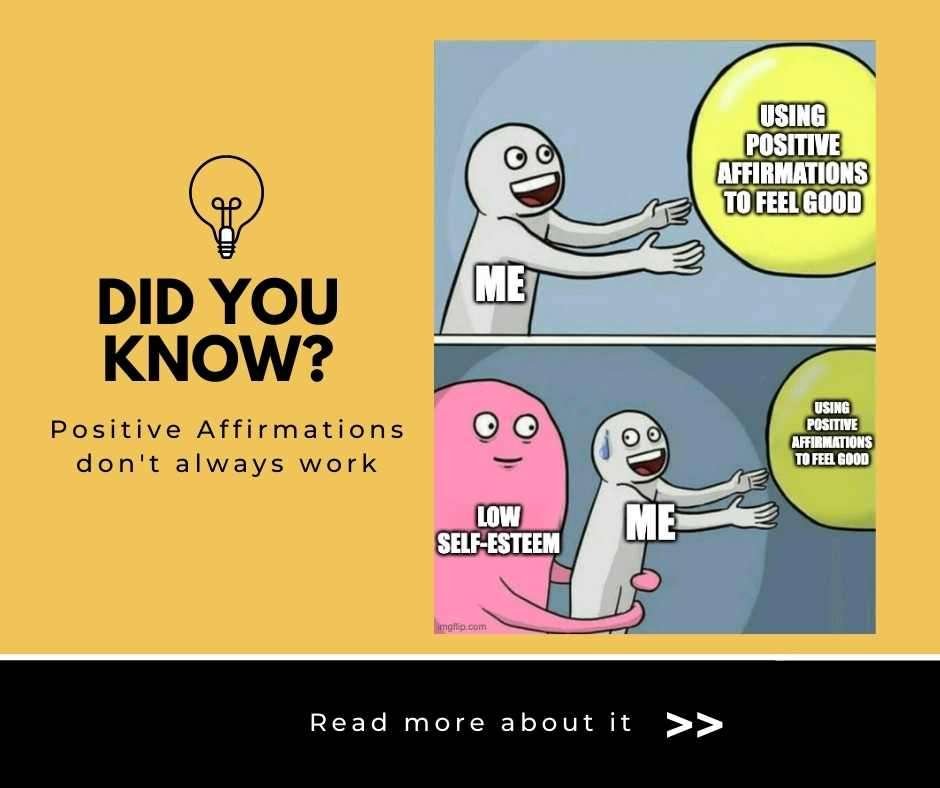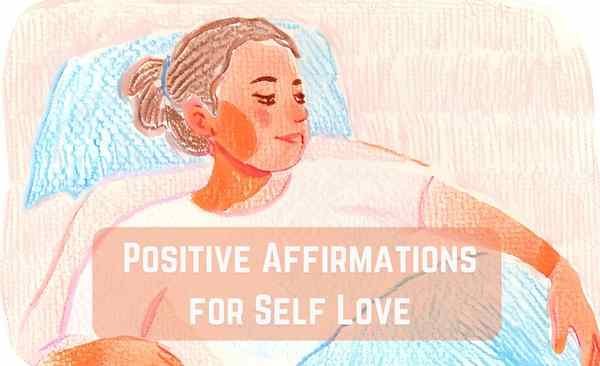Affirmations are short and straightforward statements intended to create self-change in the individual using them.
I first learned of this from the positive psychology school that I wrote for before, but it’s only recently that I remember that I had actually encountered these when I was younger.

The story will be in the later part of the articles, but one thing is for sure, my mother was a sly one!
Using Positive Affirmations for Self Love
There are different uses of affirmations in applied positive psychology, but generally, it aims to restructure an individual’s subconscious to encourage a positive belief of a concept about oneself, the environment, and the situation they are in.
These can also help build a foundation of a reality that we want to have— like attracting love, wealth, happiness, and beauty.
Walter E. Jacobson, M.D., mentioned that affirmation is truly helpful as the subconscious plays a vital role in realizing the life we want and the expression of our desires. He said that the things that we believe about ourselves at a subconscious level could substantially impact future outcomes.
Some proponents of the “law of attraction” mentioned how amplifying the vibrations that you have will attract the same kind of things in your life:
Like when we put together a positive attitude and feel good about ourselves, our lives tend to go smoothly.
On the other hand, a negative attitude coupled with feeling bad about oneself may cause an individual to engage in self-defeating behaviors, resulting in adverse outcomes, like financial mishaps, interpersonal crises, or acute or chronic illness.
The following are the most common way of using affirmations:
- Some suggest that you do affirmation activities first thing in the morning and last thing before bedtime.
- Others recommend putting them on note cards that can be easily seen, like the bathroom mirror, steering wheel on your car, computer monitor, or in your wallet, purse, or bag.
- Some suggest writing affirmations down daily is helpful because writing becomes another mechanism that helps affirmation become part of a person’s unconscious mind.
- Others recommend reading or repeating affirmations from a list, stack of cards, or smartphone apps.
Do Positive Affirmations Work?
The answer is YES, as there is scientific evidence to back it up.
- Research by Creswell and colleagues (2013) found that self-affirmations buffer stress and improve problem-solving performance in underachieving and highly stressed individuals.
- There is research that showed evidence of how affirmations help you in performing better at work. According to the study, spending just a few minutes thinking about one’s best qualities before a high-pressure meeting (ex: performance review) can help calm nerves, increase confidence, and improve chances of a successful outcome.
- Self-affirmation was also used to successfully treat individuals with low self-esteem, depression tendencies, and other mental health conditions. Results showed that the affirmations stimulated the brain areas that make people more likely to affect positive changes in health.
- A study suggests that having a stronger sense of self-worth helps in improved well-being. For example, if you’re worried that you seemed to be eating more and don’t get to have enough exercise, using affirmations to remind yourself of your values can urge you to change your behavior.
Interestingly research found that low self-esteemed people may not be helped outright by affirmations and may even make them feel worse.
This results from the conflict between a person’s current negative regard of oneself and the positive state desired through affirmations.
To combat this, a person should first work on boosting their self-esteem before using affirmations.
How to Get Started With Positive Affirmations
Self-affirmations can be regarded as a simple intervention of applied positive psychology. But Before diving straight into writing a list of affirmations, there are three things that we must go through:
- An evaluation of behavior patterns that hampers our best interests— knowing these can help us affirmations that can indeed impact our well-being.
- Motivation. Knowing that our subconscious is not always aligned with what we want to happen to ourselves, the use of repeated affirmations will help it keep aligned with our visions.
- If we want our positive affirmations to be effective, we need to learn how to construct these statements in the right ways. This way, our positive affirmations are more likely to lead to more positive actions, emotions, and experiences.
The following are the guidelines for constructing positive affirmations:
- Positive affirmations should be vocalized out loud and repeated
- Always use the present tense when saying positive affirmations
- Avoid negatives in positive affirmations
- Create positive affirmations focusing on the solution and not the problem
- Craft positive affirmations that are specific, simple, and direct
- Fill your positive affirmations with passion
- Add visualizations to your positive affirmations
- Ground your positive affirmations in your body
- Start your positive affirmation practice
- Take action on your positive affirmations
- Stick to your positive affirmations
Once have a set of affirmations, it must be used daily—at a minimum—to be effective.
Affirmations can become a source of inspiration or a simple reminder for oneself. They can also be used in focusing attention on daily goals. The slight shift in daily actions has the full potential to promote positive and self-sustained change in habits, activities, and thinking.
A Memory and Legacy of my Mother
The book that my mother gave us was the book by Og Mandino, The Greatest Salesman in the World.
When I read it back then, it did not make any sense to me. I did not even appreciate it. My brother and I were tasked to read it and list down the ten scroll titles in the book.
We didn’t know that my mother was actually writing down the affirmations. I also remember that right after that, we were to recite the list we got from the book for about a week!

I reread it recently, and here are the ten scroll titles to share with you:
- Scroll I – Commitment: I will form good habits and become their slaves
- Scroll II – Love: I will greet this day with love in my heart
- Scroll III – Persistence: I will persist until I succeed
- Scroll IV – Miracle: I am nature’s greatest miracle
- Scroll V – Time: I will live this day as if it is my last
- Scroll VI – Emotion: Today I will be a master of my emotions
- Scroll VII – Laughter: I will laugh at the world
- Scroll VIII – Value: Today I will multiply my value a hundredfold
- Scroll IX – Action: I will act now
- Scroll X – Guidance: I will pray for guidance
My mother died a decade ago, and I can’t help but smile at the thought of her cunningly teaching us affirmations way before we were ready, but I guess that will remain her legacy.
A memory that I and my brother will never forget.
It was amusing to learn now the purpose of what she made us do back then.
Who knew that I’d figure out and learn the sense of it all after all these years, right?

Leave a Reply